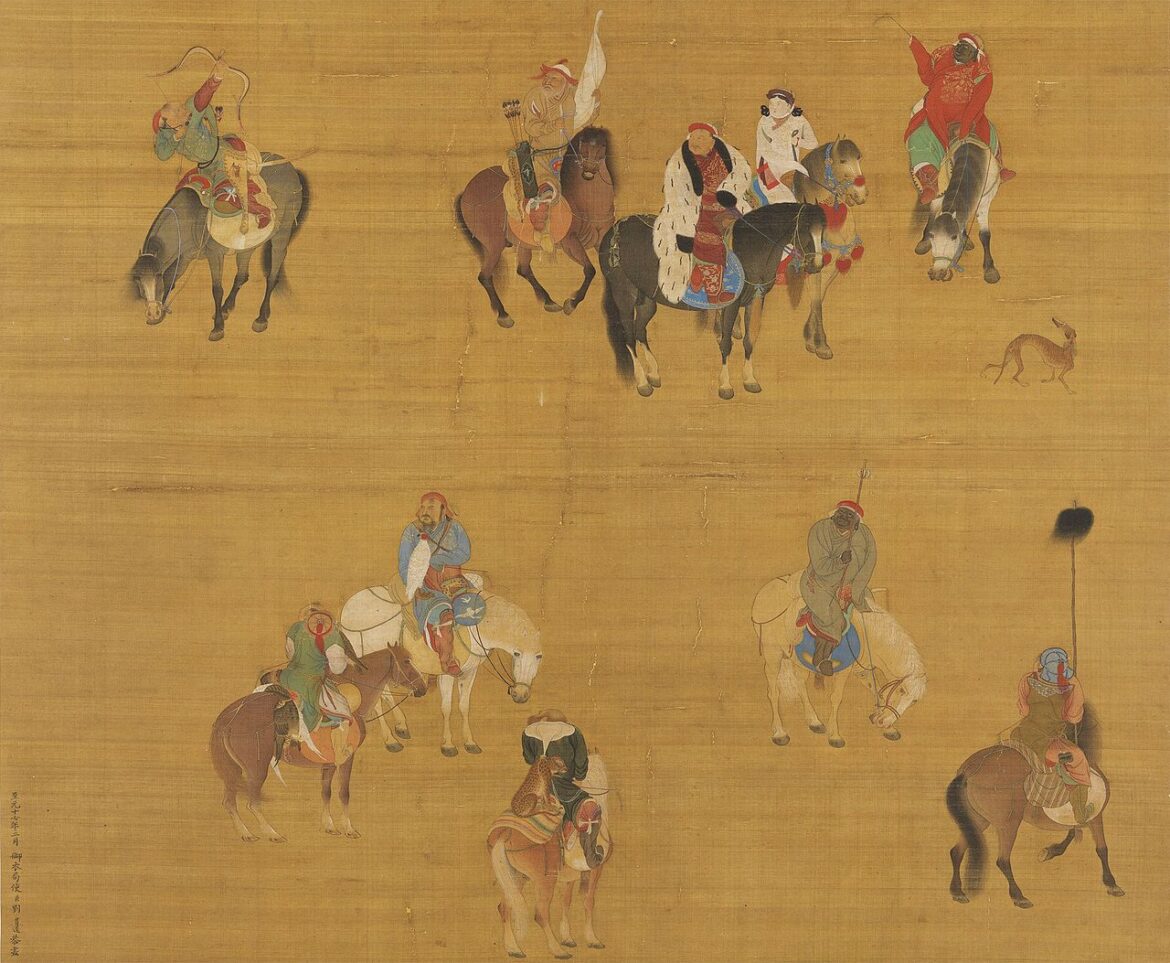Mongol soothsayer Arong predicts the suspension of the imperial examination
Arong, courtesy name Cunchu, was a Mongol born into a family of esteemed officials. From a young age, he served by the side of Emperor Wuzong of Yuan. Upon reaching adulthood, he was appointed as a guard of the imperial army. The emperor held him in high regard, frequently promoting and appointing him to local positions.
One year, a severe famine struck the Hunan region. Concerned for the people, Arong selflessly used his salary to distribute porridge and grain to relieve the disaster victims. As a result, many who were on the brink of starvation survived.
Soon after, a group of rampant bandits invaded Guangxi, causing great distress to the local populace. Upon hearing this, Arong immediately went there, drove away the bandits, and urged local officials to strengthen defenses promptly. From then on, bandits never appeared again.
Later, when Emperor Wenzong ascended the throne, Arong was continuously promoted. After holding significant military and political positions locally, he was summoned to the palace and became a key minister involved in discussing national affairs. With utmost sincerity and loyalty, Arong diligently assisted the emperor.

Although Arong was a military officer, he enjoyed studying Confucian classics in his spare time. When he saw records of disloyal, unjust, and unfilial individuals from previous dynasties, he would lament: “As a man of integrity, one should never act this way!” Despite his noble status, Arong was willing to befriend scholars from humble backgrounds. They often traveled together, composing poetry and essays and forming deep friendships.
Arong was skilled in civil and military affairs throughout his career, but was most proficient in divination. His predictions about future events and fortunes were always accurate. In the spring of the third year of the Tianli era (1330), during a grand imperial examination, he met Yu Ji, an academician of the Kuizhang Pavilion, outside the examination hall. They conversed, and Arong said: “After one more session, the imperial examination will be suspended. However, after two sessions, it will resume. By then, the court will have talented individuals to employ.” Before Yu Ji could respond, Arong added: “You will witness this future scene, but I will not.”
Yu Ji comforted him, saying: “It is great for the court to select talented individuals from scholars. With the flourishing of civil governance, the court places such importance on selecting officials that it is unlikely to suspend the examination. Moreover, you are a key minister, always assisting the emperor, and are well-versed in literary expressions. The examination is held every three years; how can it proceed without you? I am old, and even if I come to the examination hall, I will be useless.” But Arong replied: “This is fate!” When Yu Ji asked how he knew, Arong did not answer further.
Indeed, the examination was held again in 1333, but Arong had already passed away. Three years later (1336), it was suspended. After two sessions, it resumed in the year Emperor Shundi ascended the throne (1341), precisely as Arong had predicted.
Recluse Zhang Kang predicts unfortunate events in the capital
Zhang Kang, courtesy name Ru’an, styled Mingyuan, was a Han Chinese. He became an orphan early in life and was only interested in reading. As he grew up, he began studying divination. During the late Southern Song Dynasty, he served as an aide in the households of several prominent officials but retreated to seclusion on Mount Heng after the dynasty changed.
During the reign of Yuan Emperor Kublai Khan, he heard about Zhang Kang and sent a censor to find him. The censor’s brother, an official in Hunan, informed him that Zhang Kang was on Mount Heng, a reclusive sage knowledgeable in astronomy and geography. The censor quickly reported to the emperor, and Zhang Kang was soon invited to the palace. The emperor tested his knowledge and was impressed, appointing him as an assistant editor.

Subsequently, whenever summoned, the emperor received him with high ceremonial respect and addressed him by his style name “Mingyuan.” Zhang Kang would speak candidly and thoroughly whenever the emperor inquired about future events. In the eighteenth year of the Zhiyuan era, he told the emperor: “I have calculated using the Taiyi divine numbers that in the spring of the Renwu year (the nineteenth year of Zhiyuan), bandits will attack, and the danger will reach the level of ministers.” Indeed, in March of the following year, banditry erupted in the capital, and bandits killed Prime Minister Ahama.
That same year, the emperor planned a third expedition against Japan and ordered Zhang Kang to use the Taiyi method to predict the outcome. He advised the emperor: “The Southern Song is still restless, and the troops from last year’s campaign against Japan are still recuperating. From the Taiyi hexagrams, launching an expedition now would be fraught with danger.” Hearing this, Kublai Khan abandoned the idea of war.
Having practiced in the mountains for many years, Zhang Kang had long become indifferent to wealth. The Imperial Astronomical Bureau, where he was employed, had been rewarded with a large sum of silver by the emperor, and the officials intended to give Zhang Kang a thousand strings of cash as a reward, but he refused to accept any. From then on, officials respected him even more.
Follow us on X, Facebook, or Pinterest

